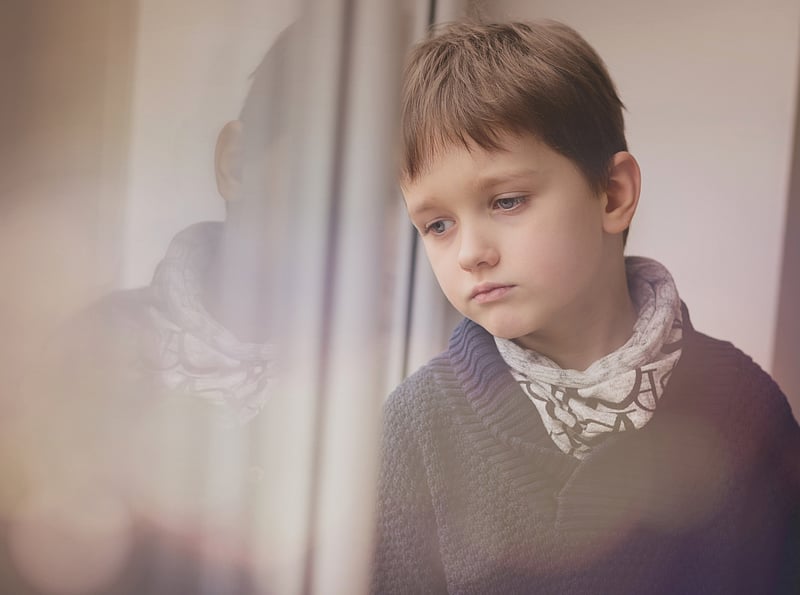Get Healthy!

- Posted July 11, 2023
Memory Issues Could Be Another Struggle for Kids With Autism
Children with autism have well-known difficulties with social interactions, but a new study is highlighting another area where they can struggle: memory.
Researchers found that compared with their peers, school-age kids with autism showed more difficulty managing memory tasks. They often had a hard time remembering faces -- something seen in past studies -- but also in recalling words and other types of information.
What's more, the researchers were able to trace the memory deficits to particular brain circuitry that was "hyperconnected."
The findings suggest that memory challenges may be a bigger issue for kids with autism than generally recognized. And that should be taken into consideration at school and in services for those children, the researchers say.
Kids with "high-functioning" autism often go to mainstream schools and receive the same instruction as their peers, said lead author Jin Liu, a postdoctoral researcher at Stanford University School of Medicine, in California.
But, she said, the new findings suggest that even though those children may have high IQs, they can still struggle with memory issues.
"So they may need extra help," Liu said.
Autism is a developmental brain disorder that, to varying degrees, impairs communication and social skills. Some kids have milder difficulties, but others are profoundly affected -- speaking little, if at all, and getting wrapped up in repetitive, obsessive behaviors. Some children have intellectual disabilities, while others have average or above-average IQs.
When it comes to memory issues, research has been fairly limited. Some studies have found that kids with autism can have a harder time remembering faces, compared with typically developing children. Less is known about whether they tend to have broader difficulties with memory.
It's an important question, Liu said, because memory skills are key to school and work performance. They also play an under-appreciated role in social relationships, she noted.
Socializing is complex, and requires people to draw upon many skills, including episodic memory -- recalling the details of an event, like your first day at school, and the emotions associated with it.
Even the seemingly simple memory for objects can matter for school kids' interactions, Liu pointed out -- if, for example, a child with autism has a hard time remembering that a classmate's backpack looks like theirs, but is not theirs.
For the new study -- published July 10 in Biological Psychiatry: Cognitive Neuroscience and Neuroimaging -- Liu and her colleagues recruited 25 children with autism and 29 typically developing kids. All were between the ages of 8 and 12, and had average to above-average IQ.
On average, kids with autism scored lower on standard memory tests, versus the comparison group. The tests gauged kids' ability to recognize whether they'd seen an image or heard a word before, and their ability to recall the details of those past experiences. Some images were of faces and others were completely "non-social" -- that is, included no people.
The researchers also found another performance difference. Among kids without autism, face and non-social memory were typically consistent: If one was good, so was the other.
But among kids with autism, the two did not always match up. Face memory might be worse than non-social memory, for example.
Some clues as to why turned up when the researchers used functional MRI scans to track the children's brain activity.
Among kids with autism, two distinct brain "circuits" were linked to memory difficulties. Problems with general memory were traced to hyperactivity in the hippocampus, a brain structure well known to be involved in memory. But struggles with face memory were tied to a brain area called the posterior cingulate cortex, which has a role in social abilities and the capacity to distinguish oneself from other people.
That does not, however, prove that abnormal activity in those brain circuits actually cause kids' memory problems, Liu said.
To parents, the findings might not come as a surprise. They know their kids best, Liu said, and may well have noticed any difficulties with general memory.
The study does not answer the question of how to best help kids with memory difficulties.
But it does raise awareness, said Alycia Halladay, chief science officer for the nonprofit Autism Science Foundation.
"This study emphasizes the need to look beyond the core autism symptoms when evaluating the needs of individuals on the spectrum," said Halladay, who was not involved in the study.
She agreed that memory challenges can have far-reaching effects, not only on things like school performance but also daily living and well-being.
"It's important to understand these memory impairments, even in those who do not have an intellectual disability," Halladay said.
More information
The U.S. National Institute of Mental Health has more on autism.
SOURCES: Jin Liu, PhD, postdoctoral scholar, psychiatry and behavioral sciences, Stanford University School of Medicine, Stanford, Calif.; Alycia Halladay, PhD, chief science officer, Autism Science Foundation, Scarsdale, N.Y.; Biological Psychiatry: Cognitive Neuroscience and Neuroimaging, July 10, 2023, online



